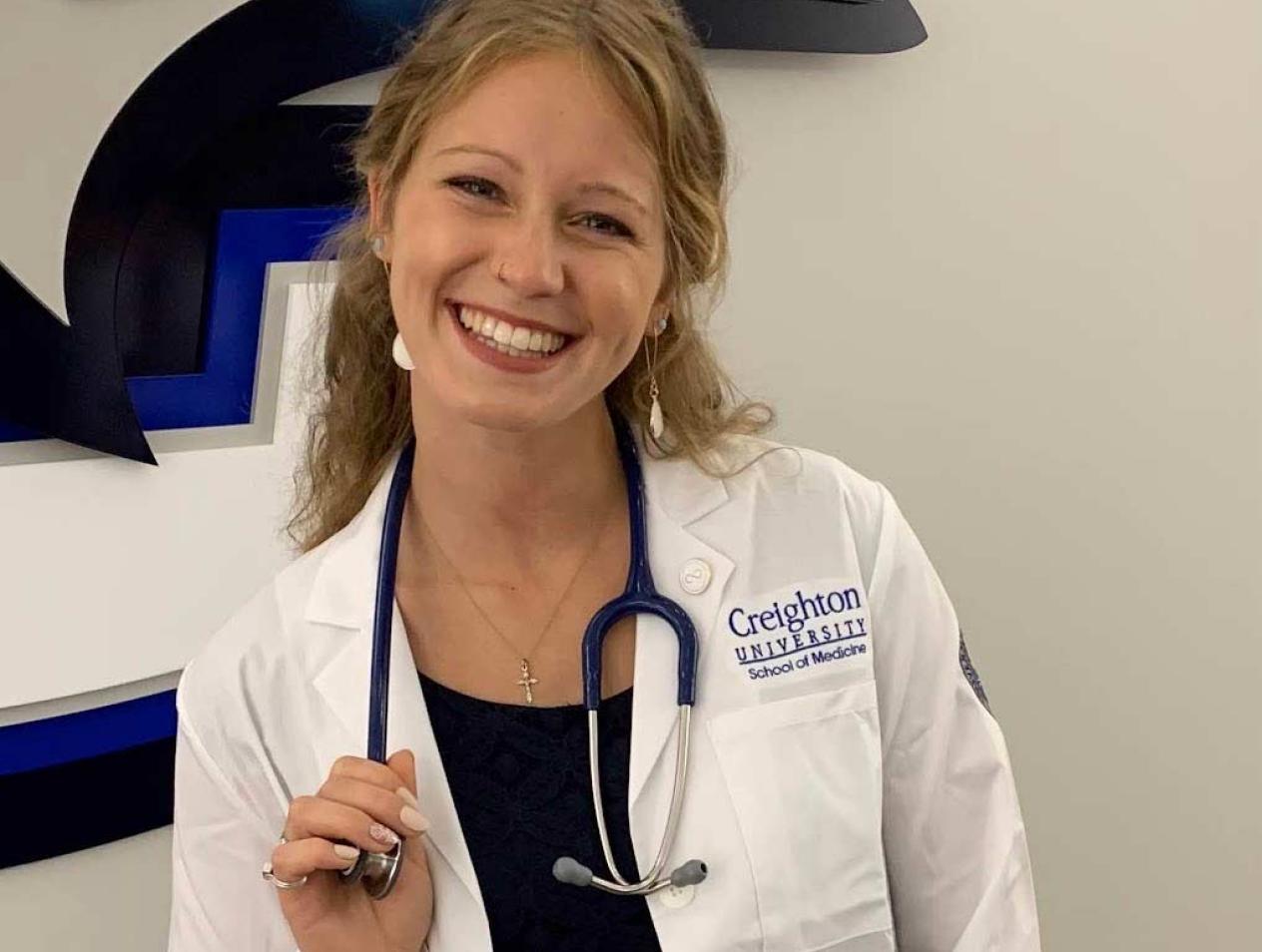Marah Miller
Marah’s experience learning about public health, medicine and healthcare disparities “has been nothing short of life-changing.”
Marah Miller grew up in Lakewood, Colorado, and attended Creighton University for her undergraduate degree, majoring in neuroscience and minoring in music and Hispanic studies. She’s continuing on at Creighton’s School of Medicine today, drawn by the focus on service and Jesuit values, as well as the accessibility of faculty and the community.
Miller is part of the inaugural cohort of students in the Arrupe Global Scholars Program. In the five-year program — available on Creighton’s Phoenix and Omaha, NE, campuses — she’ll earn MD and Master of Public Health degrees. The program offers an innovative curriculum and philosophy grounded in the concepts of decolonizing global health and health equity. She recently answered a few questions about the program.
What made you want to get into medicine?
- My interest in medicine was first piqued on a medical mission trip to Honduras. Throughout college, I enjoyed learning about the human body and biological mechanisms, but I also knew I wanted to serve others through my career. Medicine was the perfect intersection of these two interests.
How did you first hear of the Arrupe Global Scholars Program?
- I first heard of it during my interview with Creighton in November when they officially announced its commencement and told us how to keep our eyes out for the application. (I was pretty excited, to say the least.)
What has your experience been like so far?
- My experience so far has been nothing short of life-changing. This program encapsulates why I want to practice medicine, and every time I get tired of school it helps remind me why I chose this career path. My fellow classmates in the program are inspiring and wonderful sources of stimulating conversation. Our program director and my classmates push me to think about a bigger picture that I had never considered before. I’m very excited for the future.
Can you tell us what you did during your two-week orientation in the Dominican Republic?
- Our time in the Dominican Republic was difficult but also eye-opening, inspiring and incredible. We focused on learning about the Dominican Republic, its healthcare system and social system, its history, and various aspects of public health. We had invigorating discussions about disparities in healthcare and decolonizing healthcare. Confronting these topics, which emphasize the overwhelming power that people educated in the United States and areas of Europe wield, pushed us to grapple with our roles in the future of public health.
What are your long-term career goals?
- I’m very open to whichever opportunities are presented to me in the future. I do know that I want to serve underserved populations, whether that be abroad or in the United States, and I want to be involved in changing public health policy to better cater to these populations.















